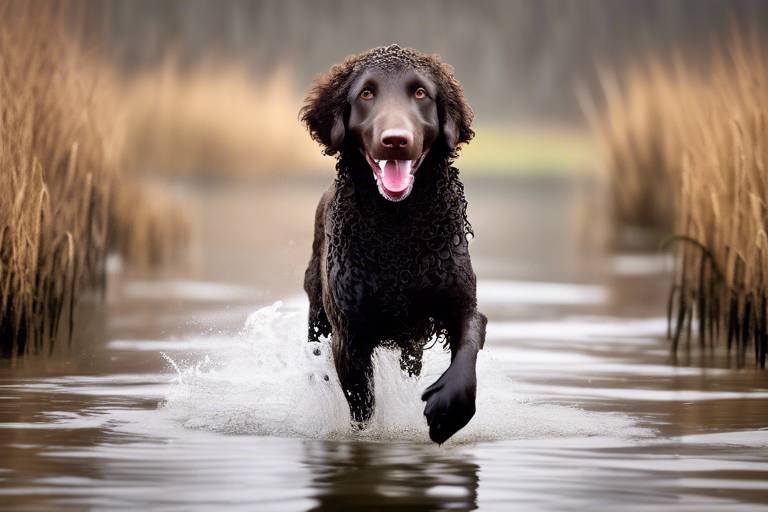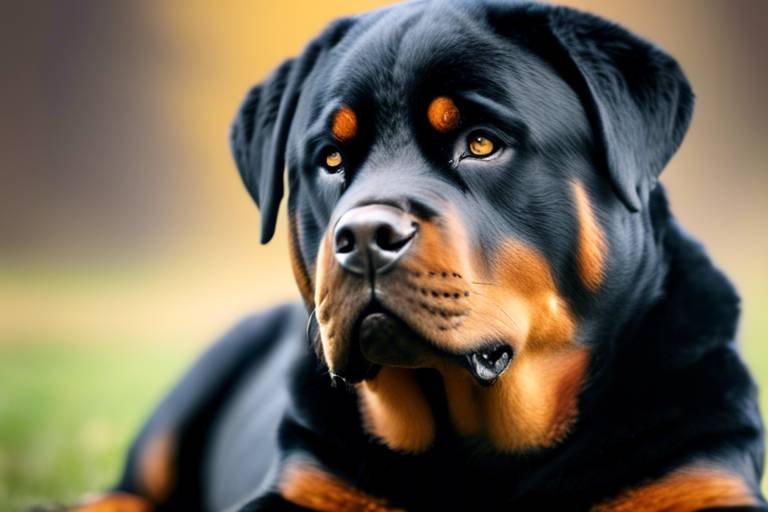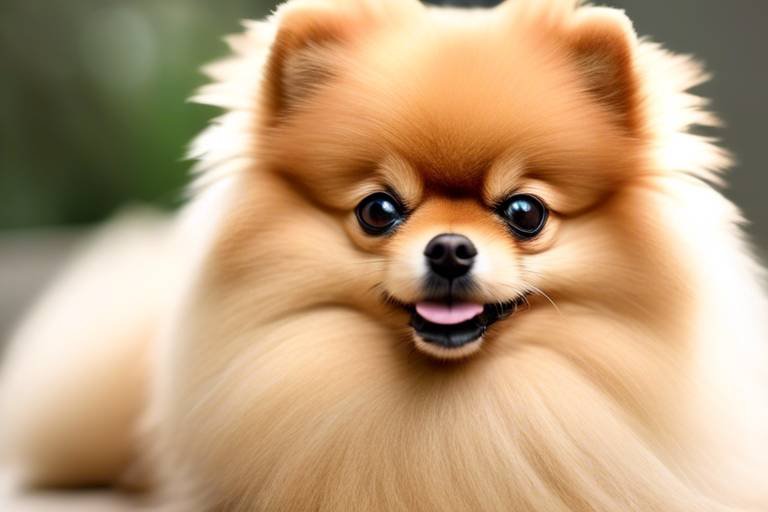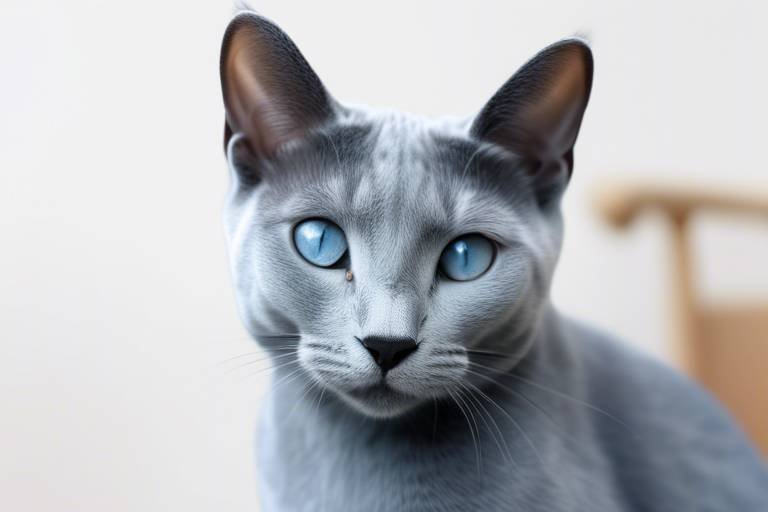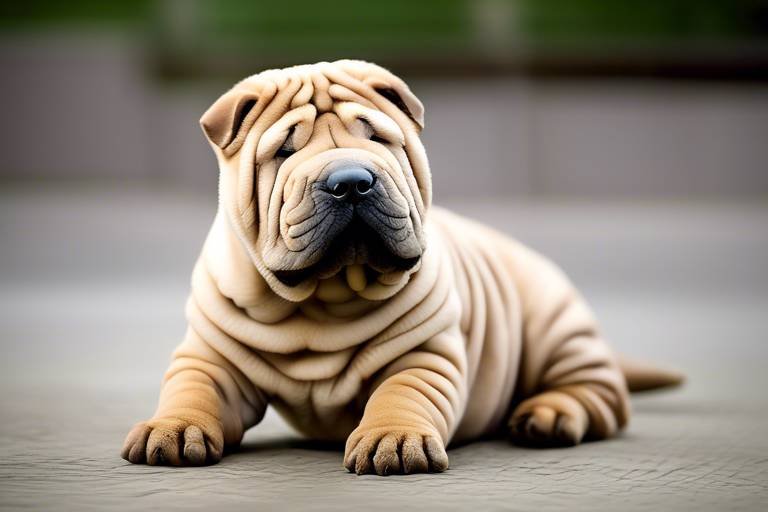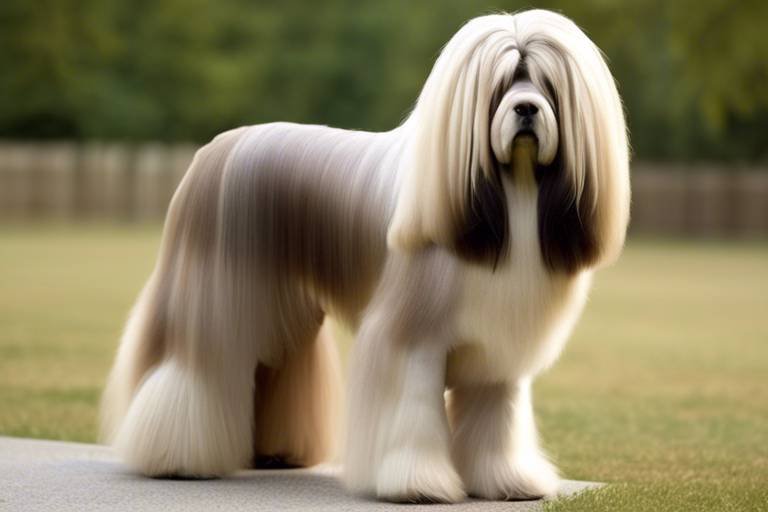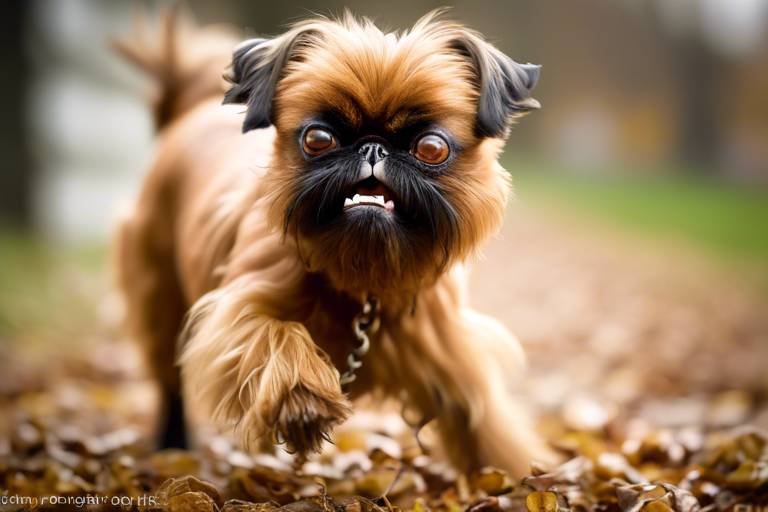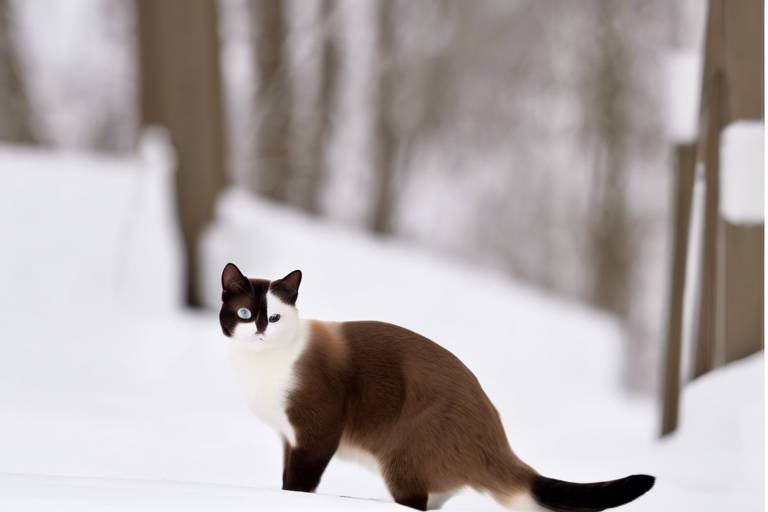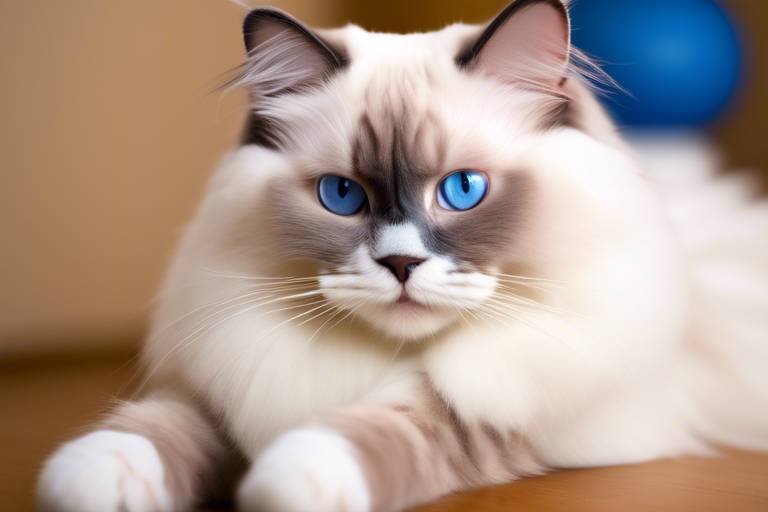Exploring the Friendly Nature of the Curly-Coated Retriever
The Curly-Coated Retriever is not just another breed; it's a delightful bundle of joy wrapped in a distinctive curly coat. Known for their friendly demeanor and affectionate nature, these dogs make fantastic companions for families and individuals alike. With roots tracing back to the 19th century in England, this breed was initially developed for retrieving game from water and land. Their unique coat not only gives them a striking appearance but also serves a practical purpose, providing protection in various weather conditions. As we delve deeper into the characteristics and qualities of the Curly-Coated Retriever, you'll discover why they are often regarded as the ultimate family pet.
Originating from the marshlands of England, the Curly-Coated Retriever was bred to be a versatile hunting dog, excelling in both water and land retrieval. Their curly coat is a hallmark of their breed, providing insulation and waterproofing, making them adept swimmers. These dogs are not just about looks; their friendly nature and sociable temperament have made them a favorite among dog lovers. With a height ranging from 20 to 27 inches and a weight between 50 to 80 pounds, they are sturdy yet graceful. Curly-Coated Retrievers are known for their intelligence and adaptability, traits that make them suitable for various living situations, from spacious homes to cozy apartments.
The Curly-Coated Retriever is renowned for its friendly and outgoing personality. They thrive on social interactions and are known to be incredibly sociable with children and other pets. Imagine coming home after a long day; the moment you step through the door, your Curly-Coated Retriever greets you with wagging tails and excited barks, ready to shower you with affection. This breed's playful nature makes them excellent companions for families, as they engage in games and activities that keep everyone entertained. Their sociability extends beyond the family; they often make friends with everyone they meet, from neighbors to fellow park-goers.
One of the most endearing qualities of the Curly-Coated Retriever is their affectionate nature. These dogs are not just pets; they become integral members of the family. Their loyalty and emotional support can be incredibly comforting, especially during tough times. Picture this: after a long day, you settle on the couch, and your furry friend curls up beside you, providing warmth and companionship. This bond is what makes the Curly-Coated Retriever more than just a dog; they are your best friend, your confidant, and your source of joy.
Curly-Coated Retrievers are like the energizer bunnies of the dog world. They possess a playful spirit that requires regular exercise to keep them happy and healthy. Whether it's a long walk in the park, a game of fetch, or a swim in the lake, these dogs thrive on activity. If you’re someone who loves outdoor adventures, a Curly-Coated Retriever will be the perfect companion. Their energy levels are high, and without sufficient physical and mental stimulation, they can become bored and exhibit undesirable behaviors. So, be prepared to engage in fun activities that challenge their minds and bodies!
When it comes to intelligence, the Curly-Coated Retriever shines brightly. They are quick learners, making them eager students in obedience courses and family activities. Their intelligence not only aids in training but also enhances their ability to understand and respond to commands. This breed thrives on mental challenges, so incorporating training games into your routine can be beneficial. Imagine teaching your dog a new trick, and within minutes, they’ve mastered it! This adaptability makes them suitable for various roles, from family pets to working dogs.
Early socialization is crucial for Curly-Coated Retrievers. Exposing them to different environments, people, and other animals helps them grow into well-adjusted and friendly adults. It’s akin to giving them a passport to the world; the more experiences they have, the more confident and sociable they become. Enrolling them in puppy classes or arranging playdates with other dogs can significantly enhance their social skills. Remember, a well-socialized dog is a happy dog!
Like any breed, the Curly-Coated Retriever has specific health considerations that potential owners should be aware of. Regular vet check-ups are essential to monitor their health and catch any potential issues early. These dogs are generally healthy but can be prone to certain conditions, including hip dysplasia and ear infections. Keeping an eye on their weight and ensuring they get enough exercise can help mitigate some health risks.
Grooming a Curly-Coated Retriever is relatively straightforward, thanks to their unique coat. While their curls can be mesmerizing, they do require some attention to prevent matting and skin issues. Regular brushing, at least once a week, is recommended to keep their coat healthy and free from tangles. Bathing should be done as needed, but be cautious not to overdo it, as too much bathing can strip their coat of natural oils.
While Curly-Coated Retrievers are generally robust, they can be susceptible to certain health issues. Some common concerns include:
- Hip dysplasia
- Ear infections
- Skin conditions
- Obesity
Regular health screenings and preventative care are vital to ensure your furry friend leads a long, happy life. By staying proactive about their health, you can enjoy many years of companionship with your Curly-Coated Retriever.
In conclusion, the Curly-Coated Retriever stands out as an exceptional family pet due to their friendly nature, intelligence, and adaptability. Their affectionate demeanor and playful spirit make them a joy to have around, while their sociability ensures they fit seamlessly into family life. Whether you live in a bustling household or a quieter setting, this breed can adapt to your lifestyle, bringing love and happiness wherever they go. If you're considering adding a new furry friend to your family, the Curly-Coated Retriever may just be the perfect match for you!
1. Are Curly-Coated Retrievers good with children?
Yes! They are known for their friendly and sociable nature, making them excellent companions for children.
2. How much exercise do Curly-Coated Retrievers need?
They require regular exercise, ideally at least an hour a day, to keep them happy and healthy.
3. Do they shed a lot?
Curly-Coated Retrievers have a low shedding coat, but regular grooming is essential to prevent matting.
4. Are they easy to train?
Yes, their intelligence and eagerness to please make them relatively easy to train, especially with positive reinforcement methods.
5. What is their lifespan?
The average lifespan of a Curly-Coated Retriever is around 10 to 12 years, with proper care and regular vet check-ups.
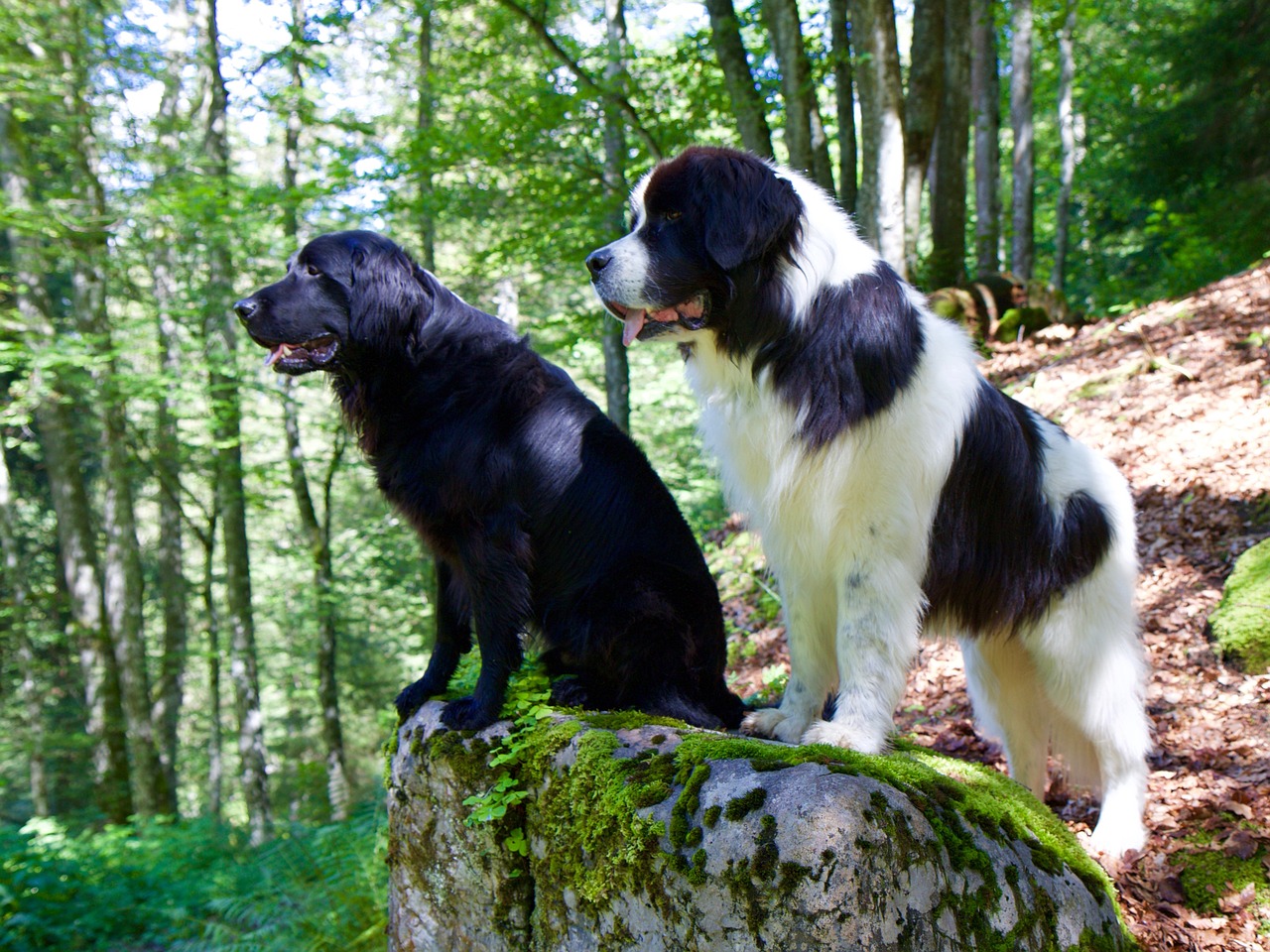
The Curly-Coated Retriever: An Overview
The Curly-Coated Retriever is a breed that truly stands out, not just because of its unique and distinctive curly coat, but also due to its remarkable history and friendly personality. Originating from England in the late 18th century, this breed was primarily developed for hunting and retrieving game from both land and water. Their resilient nature and adaptability made them a favorite among hunters, but their charm and affectionate demeanor have allowed them to transition into beloved family pets.
What makes the Curly-Coated Retriever even more fascinating is its rich heritage. This breed is one of the oldest retriever breeds, and it has contributed to the development of various other retriever breeds that we know today. With a background that includes the St. John's Water Dog and the Irish Water Spaniel, the Curly-Coated Retriever has inherited a blend of traits that make it an exceptional companion. Their curly coat not only serves as a stylish feature but also provides protection against harsh weather conditions, making them highly versatile.
When you look at a Curly-Coated Retriever, you can't help but notice their intelligent eyes and friendly expression. These dogs are known for their sociable nature, which makes them great with children and other pets. They thrive in environments where they can interact with their family members and enjoy playtime. Whether it's a game of fetch or a swim in the lake, these dogs are always up for some fun!
In terms of size, the Curly-Coated Retriever is a medium to large breed, typically weighing between 60 to 95 pounds. Their sturdy build and strong legs enable them to be agile and energetic, which is essential for their original purpose as hunting dogs. However, this energy also means they require regular exercise to stay healthy and happy. Owners should be prepared to engage in daily activities that stimulate both their physical and mental needs.
In summary, the Curly-Coated Retriever is more than just a pretty face with a curly coat. They are a breed with a rich history, bursting with personality and love. Their friendly demeanor and adaptability make them not just excellent hunting companions, but also fantastic family pets. As we delve deeper into their temperament and care needs, it becomes clear why this breed has won the hearts of so many.
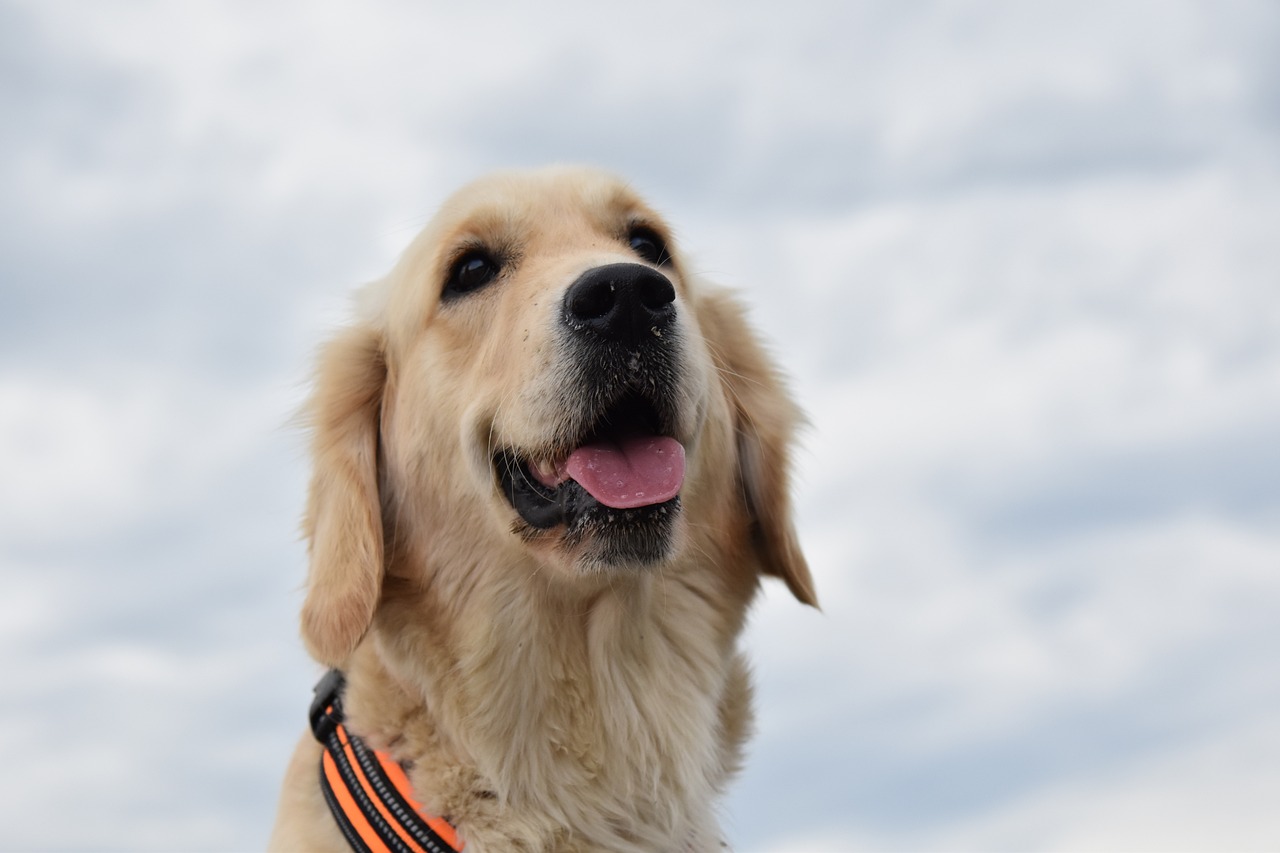
Temperament and Personality Traits
The Curly-Coated Retriever is not just a dog; it's a delightful bundle of energy and affection. Known for their friendly disposition, these dogs are often the life of the party, whether it's a family gathering or a day at the park. Their sociable nature makes them great companions for children and adults alike, and they thrive on interaction with both humans and other pets. Imagine a dog that greets you with a wagging tail and a warm gaze, ready to join in on any adventure you have planned! That’s the Curly-Coated Retriever for you.
One of the standout traits of this breed is their affectionate personality. They are known to form strong bonds with their families, often following their owners from room to room, eager to be part of every moment. This loyalty not only makes them excellent companions but also provides emotional support to their owners. It's as if they have an innate ability to sense when you need a little extra love or a comforting presence. Their gentle temperament allows them to interact harmoniously with children, making them an ideal choice for families.
In addition to their loving nature, Curly-Coated Retrievers are remarkably playful. They possess an abundance of energy that requires regular exercise. Daily walks, playtime in the yard, or even a trip to the dog park can help satisfy their playful spirit. Just picture a dog bounding through the grass, its curly coat bouncing with every leap – it's a sight that brings joy to anyone watching. However, their playfulness also means they need to be engaged with activities that challenge their minds and bodies, ensuring they remain happy and healthy.
When it comes to intelligence, the Curly-Coated Retriever doesn't fall short. They are quick learners, making training sessions enjoyable for both the dog and the owner. Whether you’re teaching them basic commands or more advanced tricks, their eagerness to learn shines through. This intelligence also makes them adaptable to various living situations, whether in a bustling family home or a quieter environment. They thrive on mental stimulation, so incorporating games and obedience training into their routine can keep their minds sharp.
However, it’s essential to remember that early socialization is crucial for these dogs. Exposing them to different environments, people, and other animals from a young age helps them develop into well-adjusted adults. This socialization process can prevent potential behavioral issues down the line, ensuring that your Curly-Coated Retriever grows up to be a friendly and confident companion. Think of it as giving them the tools they need to navigate the world around them, making them comfortable in various situations.
In summary, the Curly-Coated Retriever’s temperament is a beautiful blend of affection, playfulness, and intelligence. They are not just pets; they are family members who bring joy and laughter into our lives. Their friendly nature and sociability make them a perfect fit for families, while their playful energy ensures that there’s never a dull moment. If you’re looking for a loyal companion who thrives on love and interaction, the Curly-Coated Retriever might just be the dog for you!
- Are Curly-Coated Retrievers good with children?
Yes, their friendly and gentle nature makes them excellent companions for children. - How much exercise do they need?
Curly-Coated Retrievers require daily exercise to keep them happy and healthy, including walks and playtime. - Are they easy to train?
Yes, they are intelligent and eager to learn, making training sessions enjoyable and effective. - Do they need special grooming?
Yes, their unique curly coat requires regular grooming to prevent matting and skin issues.
Affectionate Companions
The Curly-Coated Retriever is not just a pet; they are truly that bring joy and warmth into any household. Imagine coming home after a long day, and there they are, wagging their tails with pure excitement, ready to shower you with love. Their friendly demeanor and loyalty make them more than just a dog; they become a part of the family. These dogs have an innate ability to sense their owners' emotions, often curling up beside you when you need comfort or companionship the most. It's almost like they have a sixth sense!
One of the standout features of the Curly-Coated Retriever is their unconditional love. They thrive on human interaction and are known to form strong bonds with their families. Whether it's a game of fetch in the backyard or a cozy movie night on the couch, these dogs are always eager to participate. They are particularly great with children, often displaying a gentle and patient nature that makes them the perfect playmate. It's not uncommon to see a Curly-Coated Retriever happily engaging in play with kids, making them a fantastic family pet.
Moreover, their affectionate nature extends beyond just their immediate family. Curly-Coated Retrievers are generally sociable and enjoy meeting new people and other pets. This makes them excellent candidates for family gatherings, trips to the park, or even dog-friendly events. Their friendly disposition often leads to them being the center of attention, as they love to greet guests with enthusiasm. This sociability can be nurtured through early socialization, ensuring they grow into well-adjusted adults who are comfortable in various situations.
In addition to their playful spirit, Curly-Coated Retrievers are also known for their protective instincts. They can be quite vigilant and will alert their families to any unusual activity, making them not only affectionate companions but also reliable watchdogs. This combination of affection and loyalty means that they will always have your back, watching over you and your loved ones while providing endless love and companionship.
Ultimately, the Curly-Coated Retriever's affectionate nature is a defining characteristic that sets them apart. They are more than just pets; they are loyal friends who enrich our lives in countless ways. Whether you’re looking for a snuggle buddy or an energetic playmate, this breed delivers on all fronts, making them an ideal choice for anyone seeking a loving companion.
- How much exercise do Curly-Coated Retrievers need?
These dogs are quite energetic and require at least 1 hour of exercise daily to keep them happy and healthy. - Are they good with children?
Yes! Curly-Coated Retrievers are known for their gentle and playful nature, making them excellent companions for kids. - Do they shed a lot?
While they do shed, their curly coat helps to contain loose hair, making them relatively low-shedding compared to other breeds. - What grooming do they require?
Regular brushing is essential to prevent matting and maintain their coat, along with occasional baths to keep them clean.
Playfulness and Energy Levels
The Curly-Coated Retriever is not just a pretty face; this breed is bursting with playfulness and energy that can light up any room—or park! Imagine a dog that embodies the spirit of a child at play, always ready to chase after a ball or splash around in a pool. Their playful nature is one of the many reasons they are so adored by families. But let’s not kid ourselves; this exuberance comes with a need for regular exercise and mental stimulation.
These dogs thrive on activity and require at least an hour of vigorous exercise every day. Whether it’s a game of fetch, a long walk, or a swim, the Curly-Coated Retriever is always up for a challenge. Think of them as your very own furry personal trainer, encouraging you to get outside and stay active. Not only does this keep them physically fit, but it also helps to burn off excess energy, which can prevent unwanted behaviors like chewing or barking.
In addition to physical exercise, mental stimulation is equally important for keeping your Curly-Coated Retriever happy. Engaging them in activities such as obedience training, agility courses, or puzzle toys can be incredibly beneficial. These dogs are intelligent and love to learn, so incorporating training sessions into your daily routine can be a fun way to bond while also keeping their minds sharp.
Here’s a quick breakdown of some fun activities you can do with your Curly-Coated Retriever to keep them energized and entertained:
- Fetch: A classic game that never gets old. Use a ball or frisbee and let them run to their heart's content.
- Swimming: These dogs are natural swimmers! Take them to a lake or pool for a refreshing dip.
- Agility Training: Set up an obstacle course in your backyard to challenge their agility and obedience.
- Hiking: Explore nature trails together. The Curly-Coated Retriever will love the new sights and smells!
In summary, the playfulness and energy levels of the Curly-Coated Retriever make them an excellent companion for active families. Just remember, a tired dog is a happy dog! By providing them with ample opportunities to play and exercise, you'll not only keep your furry friend healthy and happy but also strengthen the bond you share. So grab that tennis ball and get ready for some fun!
Intelligence and Trainability
When it comes to the Curly-Coated Retriever, their intelligence shines as brightly as their distinctive coat. This breed is not only known for its affectionate nature but also for its remarkable ability to learn and adapt. Imagine having a dog that not only understands your commands but also seems to anticipate your needs! This innate intelligence makes them eager learners, which is a dream come true for any dog owner. They thrive in environments where they can be challenged mentally and physically, ensuring they never get bored.
Training a Curly-Coated Retriever can be a delightful experience. Their curiosity and desire to please make them receptive to training techniques. Whether you’re teaching basic commands or more advanced tricks, these dogs are quick to pick up on cues and respond positively. It’s like having a partner in crime who’s always ready to join in on the fun! Positive reinforcement methods, such as treats and praise, work wonders with this breed. They respond exceptionally well to encouragement, making training sessions not just effective but also enjoyable.
However, it's important to remember that while Curly-Coated Retrievers are intelligent, they can also exhibit a bit of independence. This means that consistency and patience are key when training. Just like a child might test boundaries, these dogs can sometimes push back on commands if they sense you’re not entirely committed. Establishing a strong bond through regular interaction and playtime will help strengthen your training efforts.
Engaging them in various activities can also enhance their trainability. Here are some activities that can help:
- Obedience Classes: These provide structured learning and socialization with other dogs.
- Agility Training: This not only keeps them fit but also sharpens their mental acuity.
- Interactive Games: Puzzle toys and fetch can stimulate their minds and reinforce training.
As with any breed, early socialization is crucial. Exposing your Curly-Coated Retriever to different people, environments, and situations will help them become well-rounded adults. Think of it as giving them a toolkit to navigate the world confidently. The more experiences they have, the better equipped they’ll be to handle new challenges and interactions.
In summary, the intelligence and trainability of the Curly-Coated Retriever make them a fantastic choice for families and individuals alike. With the right approach, patience, and a sprinkle of fun, you’ll find that training your Curly is not just a task but a rewarding journey filled with laughter and companionship.
- Are Curly-Coated Retrievers easy to train? Yes, they are generally easy to train due to their intelligence and eagerness to please.
- What training methods work best for this breed? Positive reinforcement methods, such as treats and praise, are most effective.
- How much exercise do they need? They require regular exercise to keep them happy and healthy, ideally a mix of physical and mental stimulation.
Socialization Needs
When it comes to raising a Curly-Coated Retriever, one of the most crucial aspects to focus on is socialization. Just like a child learns to interact with the world around them, your furry friend needs to be exposed to various environments, people, and other animals from an early age. Think of socialization as the foundation upon which their personality and behavior will be built. Without this essential experience, they may grow up to be anxious or overly protective, which is the last thing you want in a family pet.
Start socializing your Curly-Coated Retriever as soon as you bring them home. This process should ideally begin in their puppyhood, between the ages of 3 and 14 weeks, when they are most impressionable. During this period, introduce them to a variety of situations, such as:
- Meeting new people, including children and seniors
- Playing with other dogs of different breeds and sizes
- Exploring different environments, like parks, busy streets, and quiet neighborhoods
- Experiencing various sounds, like traffic, vacuum cleaners, and doorbells
Each new experience helps your Curly-Coated Retriever build confidence and learn how to react appropriately to different stimuli. It's also a fantastic opportunity for you to bond with your pet. Just imagine the joy of watching your pup greet a new friend with a wagging tail instead of a bark!
As they grow, continue to expose them to new experiences. Regular trips to dog parks, obedience classes, and even casual walks in different neighborhoods can help reinforce their social skills. Remember, a well-socialized Curly-Coated Retriever is not just a happy dog; they are also a well-rounded family member who knows how to behave in various settings.
Moreover, don't underestimate the power of positive reinforcement during this process. Reward your dog with treats or praise when they interact positively with new people or pets. This method will help them associate new experiences with positive outcomes, making them more eager to explore the world around them.
In conclusion, socialization is not just a one-time event; it’s a lifelong commitment. The more you invest in your Curly-Coated Retriever’s social skills, the more you’ll enjoy the affectionate and friendly nature that makes this breed so special. By ensuring they are well-socialized, you’re paving the way for a loving, confident, and adaptable companion who will thrive in your family environment.
- What age should I start socializing my Curly-Coated Retriever?
Begin socialization as early as 3 weeks old and continue until they are about 14 weeks old for the best results. - How can I socialize my dog effectively?
Expose them to a variety of environments, people, and other animals, using positive reinforcement to encourage good behavior. - Is socialization a one-time process?
No, socialization should be an ongoing effort throughout your dog's life to maintain their friendly demeanor.

Health and Care Considerations
When it comes to the Curly-Coated Retriever, understanding their health and care needs is essential for any devoted pet owner. This breed, known for its unique curly coat and vibrant personality, requires a specific approach to maintain their health and happiness. Regular vet check-ups are crucial, as they help catch any potential health issues early on. Just like you wouldn’t ignore a warning light on your car dashboard, you shouldn’t overlook your furry friend’s health signals. A proactive approach can lead to a longer, healthier life for your beloved Retriever.
One of the primary aspects of care for a Curly-Coated Retriever is their grooming needs. Their curly coat is not just for show; it serves a purpose, protecting them from harsh weather. However, it also requires regular maintenance to prevent matting and skin issues. Grooming should ideally be done every few weeks, and it’s a great opportunity to bond with your pet. Think of it as a spa day for your dog! Regular brushing not only keeps their coat looking fabulous but also allows you to check for any unusual lumps or skin irritations.
Moreover, it’s important to be aware of common health issues that can affect this breed. Some of the most prevalent concerns include:
- Hip Dysplasia: A genetic condition where the hip joint doesn’t fit properly into the hip socket, leading to arthritis.
- Ear Infections: Their floppy ears can trap moisture, making them susceptible to infections.
- Skin Problems: Due to their unique coat, they can be prone to certain skin conditions if not properly groomed.
To ensure the best health for your Curly-Coated Retriever, consider the following care tips:
| Care Aspect | Recommendation |
|---|---|
| Grooming | Brush every 2-4 weeks; consider professional grooming as needed. |
| Exercise | At least 1 hour of daily exercise; includes walks, playtime, and mental stimulation. |
| Diet | High-quality dog food appropriate for their age and activity level; consult your vet for specific needs. |
| Health Check-ups | Regular vet visits at least once a year; more frequently as they age. |
By keeping an eye on these health considerations and being proactive about their care, you’ll not only enhance your Curly-Coated Retriever’s quality of life but also strengthen the bond you share. Remember, a happy dog is a healthy dog!
- How often should I groom my Curly-Coated Retriever? - It’s recommended to groom them every 2-4 weeks to prevent matting and skin issues.
- What are the common health issues in Curly-Coated Retrievers? - They can face issues like hip dysplasia, ear infections, and skin problems.
- How much exercise do they need? - At least 1 hour of exercise daily is ideal for keeping them healthy and happy.
- Do they require special dietary needs? - Yes, high-quality dog food tailored to their age and activity level is essential. Consult your vet for personalized advice.
Grooming Requirements
When it comes to grooming, the Curly-Coated Retriever has some unique needs that are essential for maintaining their health and appearance. Their distinctive curly coat, while beautiful, requires regular attention to keep it in top shape. Imagine a well-groomed dog as a canvas; without the right care, even the most stunning artwork can lose its vibrancy. So, let’s dive into what it takes to keep your Curly-Coated Retriever looking sharp!
First and foremost, it’s important to understand that their coat is designed to repel water and dirt, which is fantastic for outdoor adventures. However, this means that regular grooming is necessary to prevent matting and tangles. Ideally, you should brush your Curly-Coated Retriever at least once a week. Using a slicker brush or a comb with wide teeth can help remove loose hairs and prevent any knots from forming. Think of it as a spa day for your furry friend—who wouldn’t want that?
In addition to brushing, regular bathing is crucial, but it’s vital not to overdo it. Bathing your dog too frequently can strip their coat of natural oils, leading to dryness and irritation. A good rule of thumb is to bathe them every 6 to 8 weeks, or as needed if they get especially dirty. When bathing, use a dog-specific shampoo that is gentle on their skin. After all, you wouldn’t want to use harsh chemicals on your own skin, right?
Another important aspect of grooming is checking their ears, eyes, and teeth regularly. Curly-Coated Retrievers can be prone to ear infections due to their floppy ears, so keeping them clean and dry is essential. Wipe the inside of their ears with a damp cloth to remove any debris and prevent infections. Additionally, regular dental care is important; brushing their teeth a few times a week can help prevent dental diseases. It’s like giving your dog a little health insurance policy!
Here’s a quick summary of the grooming requirements for your Curly-Coated Retriever:
| Grooming Task | Frequency |
|---|---|
| Brushing | Once a week |
| Bathing | Every 6-8 weeks |
| Ear Cleaning | Weekly |
| Dental Care | 2-3 times a week |
By keeping up with these grooming tasks, you’ll not only ensure that your Curly-Coated Retriever looks their best, but you’ll also be contributing to their overall health and happiness. After all, a well-groomed dog is a happy dog!
- How often should I groom my Curly-Coated Retriever? - Aim for weekly brushing and a bath every 6-8 weeks.
- What type of shampoo is best for my dog? - Use a gentle, dog-specific shampoo to maintain their coat's natural oils.
- Are there any specific tools I need for grooming? - A slicker brush, wide-tooth comb, and ear cleaning solution are essential.
- Can I take my Curly-Coated Retriever to a groomer? - Absolutely! Professional groomers can help with more extensive grooming needs.
Common Health Issues
The Curly-Coated Retriever, while generally a robust and healthy breed, is not immune to certain health issues. Understanding these potential concerns can help you provide better care and ensure a longer, happier life for your furry friend. One of the most common health issues faced by Curly-Coated Retrievers is hip dysplasia, a genetic condition where the hip joint doesn't fit snugly into the hip socket. This can lead to discomfort and arthritis over time. Regular vet check-ups and maintaining a healthy weight can help mitigate this problem.
Another issue to be aware of is progressive retinal atrophy (PRA), a degenerative eye condition that can lead to blindness. Although it sounds daunting, many dogs adapt well to vision loss, and early detection through regular veterinary visits can help manage the condition effectively. Additionally, Curly-Coated Retrievers are prone to certain skin conditions, particularly if their curly coats are not groomed properly. Regular grooming not only keeps their coat looking great but also helps prevent matting and skin irritations.
Here’s a quick overview of some common health issues that Curly-Coated Retrievers may face:
| Health Issue | Description | Preventative Measures |
|---|---|---|
| Hip Dysplasia | A genetic condition affecting the hip joint. | Maintain a healthy weight; regular vet check-ups. |
| Progressive Retinal Atrophy (PRA) | A degenerative eye condition leading to blindness. | Regular eye check-ups; early detection. |
| Skin Conditions | Issues stemming from improper grooming. | Regular grooming; monitor for irritations. |
By being proactive about these health issues, you can significantly enhance your Curly-Coated Retriever's quality of life. Regular veterinary visits, a balanced diet, and proper grooming are essential components of their care. Remember, a healthy dog is a happy dog, and your furry friend deserves nothing less!
- What is the average lifespan of a Curly-Coated Retriever? Typically, they live between 10 to 12 years.
- Do Curly-Coated Retrievers require a lot of exercise? Yes, they are energetic dogs that thrive on regular exercise and mental stimulation.
- Are they good with children? Absolutely! Their friendly nature makes them excellent companions for kids.
- How often should I groom my Curly-Coated Retriever? Regular grooming every few weeks is recommended to keep their coat healthy and free of mats.
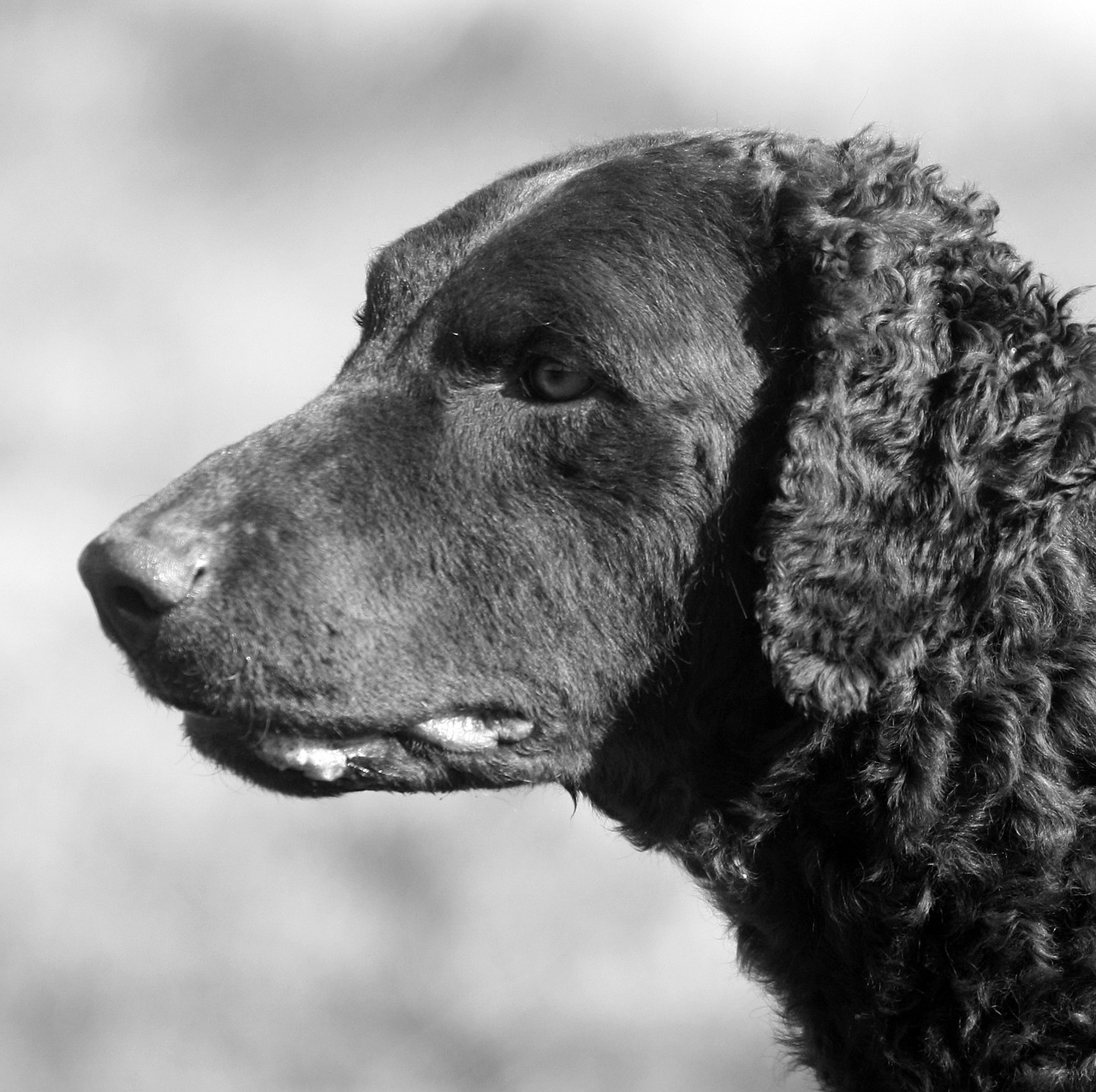
Conclusion: The Ideal Family Pet
In conclusion, the Curly-Coated Retriever truly shines as an exceptional family pet. Their affectionate nature combined with an innate sociability makes them a beloved companion for families of all shapes and sizes. Imagine coming home after a long day, and being greeted by a wagging tail and a warm, curly embrace—what could be better? These dogs not only offer unconditional love but also bring a unique energy that can light up any household.
Moreover, their adaptability is remarkable. Whether you live in a cozy apartment or a spacious house with a yard, the Curly-Coated Retriever can adjust to your living situation, provided they receive ample exercise and mental stimulation. This breed's playful spirit ensures that there’s never a dull moment, making them perfect for active families who enjoy outdoor adventures together.
What sets the Curly-Coated Retriever apart is their intelligence and eagerness to please. This makes training not just a necessity but a fun bonding experience for both the dog and the owner. With the right training and socialization, these dogs can grow into well-mannered companions that are a joy to have around.
To further highlight the benefits of owning a Curly-Coated Retriever, let’s consider some key points:
- Affectionate and Loyal: They form strong bonds with their families.
- Playful and Energetic: Always ready for fun and games, keeping family members entertained.
- Intelligent and Trainable: Quick learners who thrive on positive reinforcement.
- Good with Children: Their friendly disposition makes them excellent companions for kids.
- Adaptable: They can fit into various living situations, as long as they get enough exercise.
Ultimately, if you’re searching for a furry friend who not only enhances your life with joy and laughter but also offers loyalty and companionship, the Curly-Coated Retriever is an ideal choice. Their friendly demeanor and versatile nature make them a perfect addition to any family, ensuring that every day is filled with love and adventure.
1. Are Curly-Coated Retrievers good with children?
Yes, they are known for their friendly and sociable nature, which makes them great companions for children.
2. How much exercise do they need?
Curly-Coated Retrievers are energetic dogs that require regular exercise—about 1 hour a day is ideal to keep them happy and healthy.
3. Do they shed a lot?
While they do shed, their curly coat helps to trap loose hair, making them relatively low-shedding compared to other breeds.
4. What grooming do they require?
They need regular grooming to prevent matting and maintain the health of their coat, but they are generally low-maintenance compared to other breeds.
5. Are they easy to train?
Yes, Curly-Coated Retrievers are intelligent and eager to learn, making them relatively easy to train with positive reinforcement techniques.
Frequently Asked Questions
- What is the temperament of the Curly-Coated Retriever?
The Curly-Coated Retriever is known for its friendly and sociable nature. They are affectionate companions who thrive on human interaction and enjoy being part of family activities. Their playful spirit makes them great with children and other pets, ensuring a lively household!
- Are Curly-Coated Retrievers easy to train?
Absolutely! These dogs are intelligent and eager to please, which makes training a breeze. With consistent and positive reinforcement, they can quickly learn commands and tricks. Just think of them as enthusiastic students ready to impress their teachers!
- How much exercise do Curly-Coated Retrievers need?
Curly-Coated Retrievers are energetic dogs that require regular exercise to stay happy and healthy. Aim for at least an hour of activity each day, whether it's walks, playtime, or even swimming. Keeping them active is key to preventing boredom and maintaining their playful nature!
- What are the grooming needs for a Curly-Coated Retriever?
The unique curly coat of the Curly-Coated Retriever requires specific grooming to prevent matting and skin issues. Regular brushing is essential, ideally once a week, to keep their coat in top shape. Plus, occasional baths will help maintain cleanliness and shine!
- What health issues should I be aware of with this breed?
While generally healthy, Curly-Coated Retrievers can be prone to certain health issues like hip dysplasia and certain skin conditions. Regular vet check-ups and preventative care are crucial to catching any potential problems early, ensuring your furry friend lives a long and healthy life.
- Are Curly-Coated Retrievers good family pets?
Yes! Their friendly and affectionate nature makes them ideal family pets. They bond closely with their families and are known for their playful interactions with children. If you're looking for a loyal companion who fits seamlessly into family life, this breed is a fantastic choice!
- How can I ensure my Curly-Coated Retriever is well-socialized?
Early socialization is key! Expose your Curly-Coated Retriever to various environments, people, and other animals from a young age. This helps them develop into well-adjusted adults who are comfortable in different situations. Think of it as giving them a toolkit for life!

